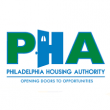
Geraldine Harris was raising two daughters in West Philadelphia but when she had a son, her anxiety about the neighborhood grew. A boy, she thought, might be more vulnerable to bad influences on the nearby streets.
Already enrolled in the Housing Choice Voucher program (formerly Section 8), Harris discovered she could leverage her good record in that program to move to a quieter neighborhood — if she could find a landlord that would accept vouchers.
“I went on Craigslist, Trulia and other housing sites and they didn’t mention Section 8, but I took a chance and called them anyway,” she told KYW
She lucked out. Harris is now happily at home in the Clearview neighborhood of Southwest Philadelphia.
“I feel good. My kids can go outside and play. I don’t worry about gun violence or people standing on the corner smoking weed. There are not corner stores around here. There’s a really nice schools in the neighborhood. I feel great,” she said.
Alas, Philadelphia Housing Authority president Kelvin Jeremiah said Harris’ good luck is too rare. Not enough landlords will take vouchers.
That’s why PHA is extending, through April, an incentive program for landlords that it started in the fall. At that time, it received $10 million in COVID-19 relief funds for vouchers, enough to provide them to 863 additional tenants.
“These incentives are aimed at nudging landlords,” he says.
“There is an affordable housing scarcity, and so participants in our housing choice voucher program are spending months trying to find an apartment. The crisis that we’re confronted with is not one that PHA alone can solve, so we are looking for property owners in the city to take action.”
With the new funding, there are about 20,000 voucher holders in the city, but only about 5,000 landlords that accept vouchers.
Jeremiah said landlords are reluctant because of past problems with the program, including excessive bureaucracy that ended up costing them money because their units sat empty while they waited to get them approved.
He added PHA has cut red tape and has a landlord liaison to help with the process.
The incentive program adds the inducement of a $500 bonus for each lease a landlord signs with a voucher holder. The bonus could go as high as $1,000 for landlords in the Housing Opportunity Program that Harris participates in.
The incentive program is also intended to overcome another obstacle, the fear that voucher holders will not care for their rental units.
“We deal sometimes with a very challenging population who has quite a lot of needs,” Jeremiah says. “Landlords are reluctant to rent to them because they believe the units might be destroyed or not properly cared for.”
The incentives include an Owner’s Assurance Fund that will reimburse repairs up to $2,500.
Landlord Paul Badger happily accepts vouchers. He says PHA has come a long way in making the program easier for landlords, through automation and efficiencies.
He also thinks voucher holders get an undeserved bad rap.
“There are good and bad tenants that happen to be within the PHA system, but there’s also good and bad tenants in the general market,” he said in a recent interview. “It’s important to not be afraid of a program based on that.”
Badger said taking vouchers has been good for business, but he also thinks it’s the right thing for landlords to do.
“I think it is a requirement that people give back,” he said. “To whom much is given, much is required and I feel that we should make a commitment and an effort to really help fulfill gaps in our market for underserved communities, and affordable housing is one of those.”
From KYW






